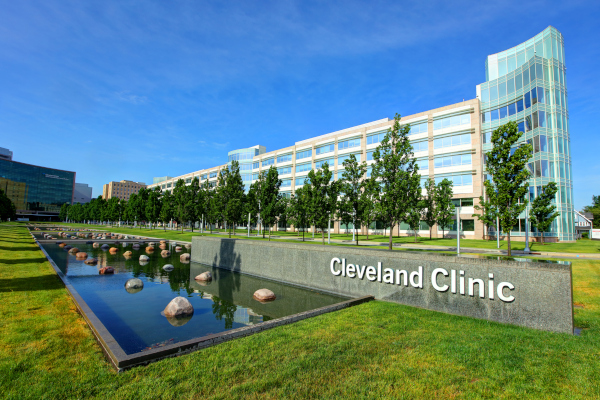The Cleveland Clinic climbed atop the mountain on the 15th annual Gartner Healthcare Supply Chain Top 25 ranking, released earlier in December, with the Mayo Clinic and Intermountain Health achieving the coveted Master status for the sixth consecutive year.
The Cleveland Clinic achieved top scores among the peer opinion voting category, as well as in the ESG metric, earning the only 10 on the 10-point scale. Its overall score was 8.36, far ahead of second-place Corewell Health, with a 6.48 for second.
“2023 was another challenging financial year for healthcare supply chains,” said Eric O’Daffer, Vice President Analyst in Gartner’s Supply Chain practice. “Despite a difficult climate that included responding to inflation, leaders were able to look to the future with investments in improved technology, talent development and risk management. There was a focus as well on clinical alignment and innovation.”
In its sixth year, the Healthcare Supply Chain Top 25 Masters recognizes sustained supply chain leadership at health systems. Gartner said the recognition is awarded only to supply chains that have achieved a top-five score at least seven times in the past 10 years. This year, Mayo Clinic and Intermountain Health achieved Masters status for the sixth consecutive year.
The remainder of the Top 25’s top 5 includes Advent Health at three, followed by Stamford Healthcare and Advocate Health. Henry Ford Health, at number 21, joins the list for the first time, while John Hopkins, at number 18, rejoins the list this year.
The full list can be found here.
Prevalent themes
The Gartner researchers identified three prominent themes among this year’s list. They are building digital supply chains, attracting and retaining talent, and developing an antifragile supply chain.
“Our research points to supply chain leaders at health systems prioritizing investment in data analytics/digital supply chain initiatives in the next three to five years, followed by automation as the second priority,” said O’Daffer. “With cost cutting and driving efficiency being a focus for leaders, we’re seeing digitalization trends shift from providing transactional to strategic value to organizations.”
Like most industries, the healthcare supply chain is also facing challenges with attracting and retaining talent. The frontlines are particularly challenged in this, with many organizations turning to automation for warehouse and logistics tasks where appropriate.
Leadership is also facing a talent shortage, with Gartner research finding that nearly half of healthcare supply chain leaders have less than three year’s tenure in their current roles.
Antifragile supply chains, a move past risk and resiliency to a broader approach to withstand uncertainty, is also something the Gartner researchers expect healthcare supply chains to adopt more broadly moving forward.
“In the aftermath of the COVID-19 pandemic, most health systems placed a new emphasis on building resiliency in their supply chains,” said O’Daffer. “Expanding on these efforts, we expect more organizations to focus on achieving antifragility. This involves assessing risk beyond global manufacturing to cybersecurity for capital equipment and financial viability of commercial partners.”
Gartner clients can read more in The Healthcare Supply Chain Top 25 for 2023.
SC
MR


Latest Supply Chain News
Latest Podcast

 Explore
Explore
Business Management News
- AdventHealth named top healthcare supply chain by Gartner
- Unlocking retention: The role employee engagement plays
- Can supply chain managers embrace an entrepreneurial mindset?
- Challenges to ESG reporting
- With capacity to spare, logistics real estate demand remains subdued
- How to improve demand forecasts for new product families
- More Business Management
Latest Business Management Resources

Subscribe

Supply Chain Management Review delivers the best industry content.

Editors’ Picks




